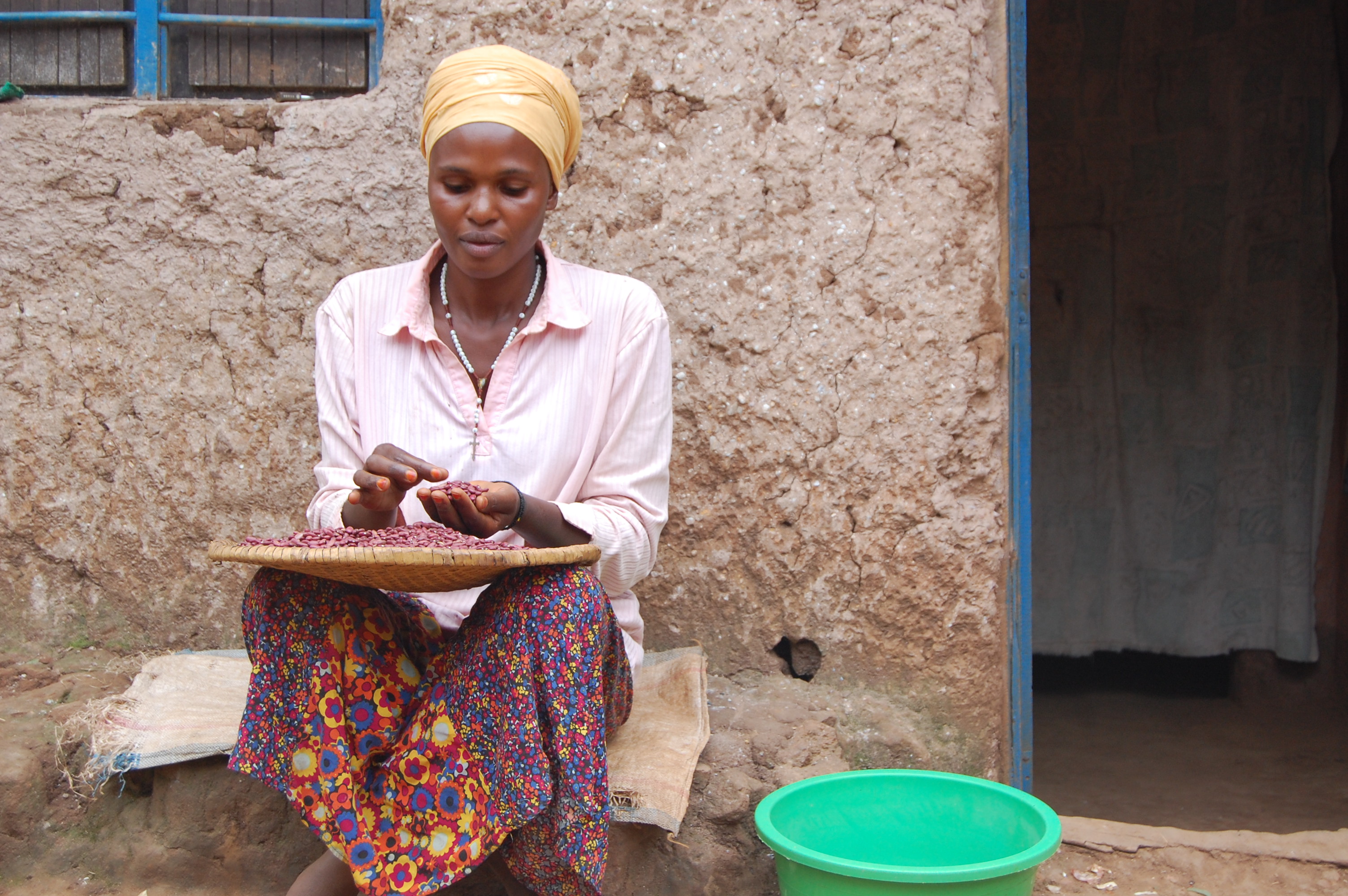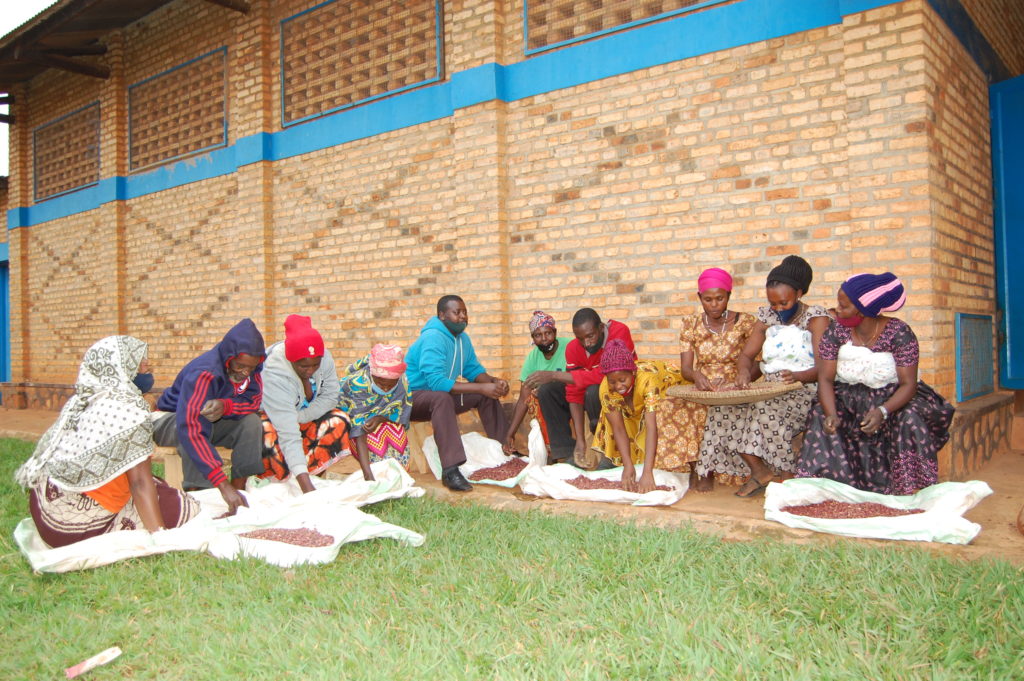by Desire Kagabo, Yvonne Munyangeri, Patrick Mvuyibwami, Patricia Onyango
With a per capita consumption of more than 150g per person per day, beans are the most consumed and important source of protein and essential micro-nutrients in Rwanda. Its Eastern Province is particularly prone to climate risks for bean production because of long dry spells, increasing temperatures, and erratic rainfall that lead to frequent crop failure and food shortages. The Alliance of Biodiversity International and CIAT, in collaboration with Global Affairs Canada, has been providing training so that farmers can access and use climate information services to better manage their farms. In addition to climate information, trainees also receive new climate-smart, high-iron bean varieties to plant.
One of the past trainees was 39-year-old, Shakira Umutoni from the Eastern Province, where she lives with her husband and three children. Shakira, together with the other farmers at the five-day training, learned about historic rainfall trends, weather forecasting, and how to make decisions based on weather forecasts and agricultural advisories. They also learned new practices to conserve and efficiently use rainwater on their farms.
Shakira noted, “Before the training, I used to broadcast bean seed in the field, but afterward, I decided to plant the new climate-smart, higher iron bean variety in rows, observe the recommended spacing, and retain moisture in my fields by tied-ridging and mulching.” The results were heartwarming. “The first year, I harvested 200 kilos of beans, which is almost 10 times my previous harvest of 25 kilos!”
Keenly following climate information, Shakira used some of the funds from her sales to rent additional land where she did bean and maize rotation and intercropping. She has not looked back. Since then, she has harvested 300 kg of beans and eight (8) sacks of maize (almost 1 ton) every season. “My life has changed for good,” she said, beaming with joy.
Before the training, the quantity of beans that Shakira harvested was not enough to feed her family. “We would go for two weeks without eating beans because we could not afford to buy them.” She explained. But now, Shakira produces enough beans to sell some at a profit, save enough seed for the subsequent season, and still feed her family nutritious beans all year. “Previously my three-year-old boy was malnourished, which the village health personnel brought to my attention, but now she is healthy,” she stated proudly.
Previously the family could not afford to access healthcare, but with the additional income from bean sales, they can now afford community health insurance. With the cumulative income from selling beans for three consecutive seasons, the family has also been able to expand and renovate their house, including the addition of glass windows.
Neighbors have been curious to learn more about Shakira’s farming improvements and she is eager to pass on her knowledge. So far, she has trained 65 cooperative members: “When I receive climate information, I now share it with my neighbors so they can make the right decisions for their farms.” All these changes have brought Shakira enhanced self-esteem. “I used to avoid attending meetings because I felt I did not have appropriate clothes, but now, I feel proud of myself”, says Shakira.


